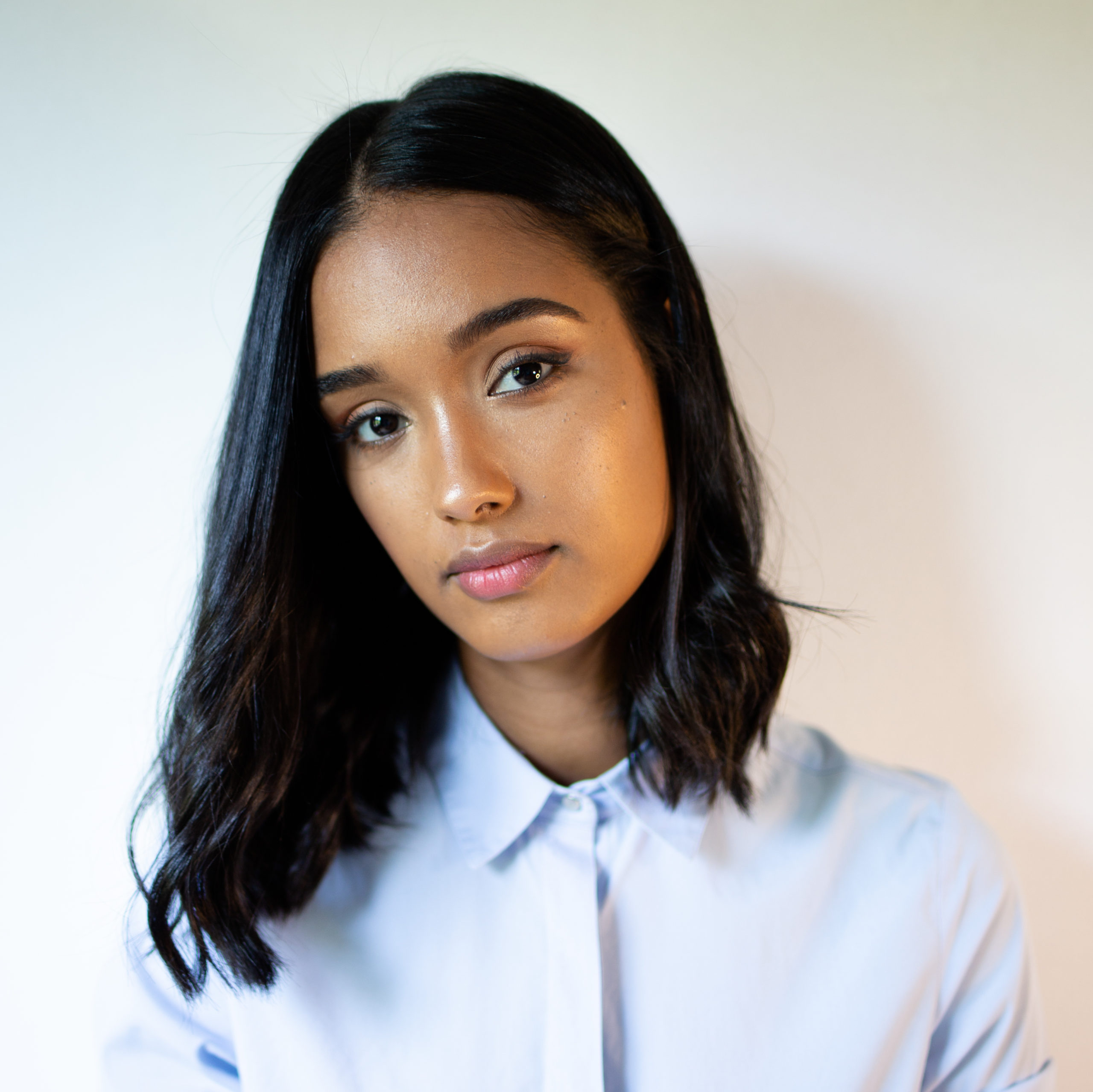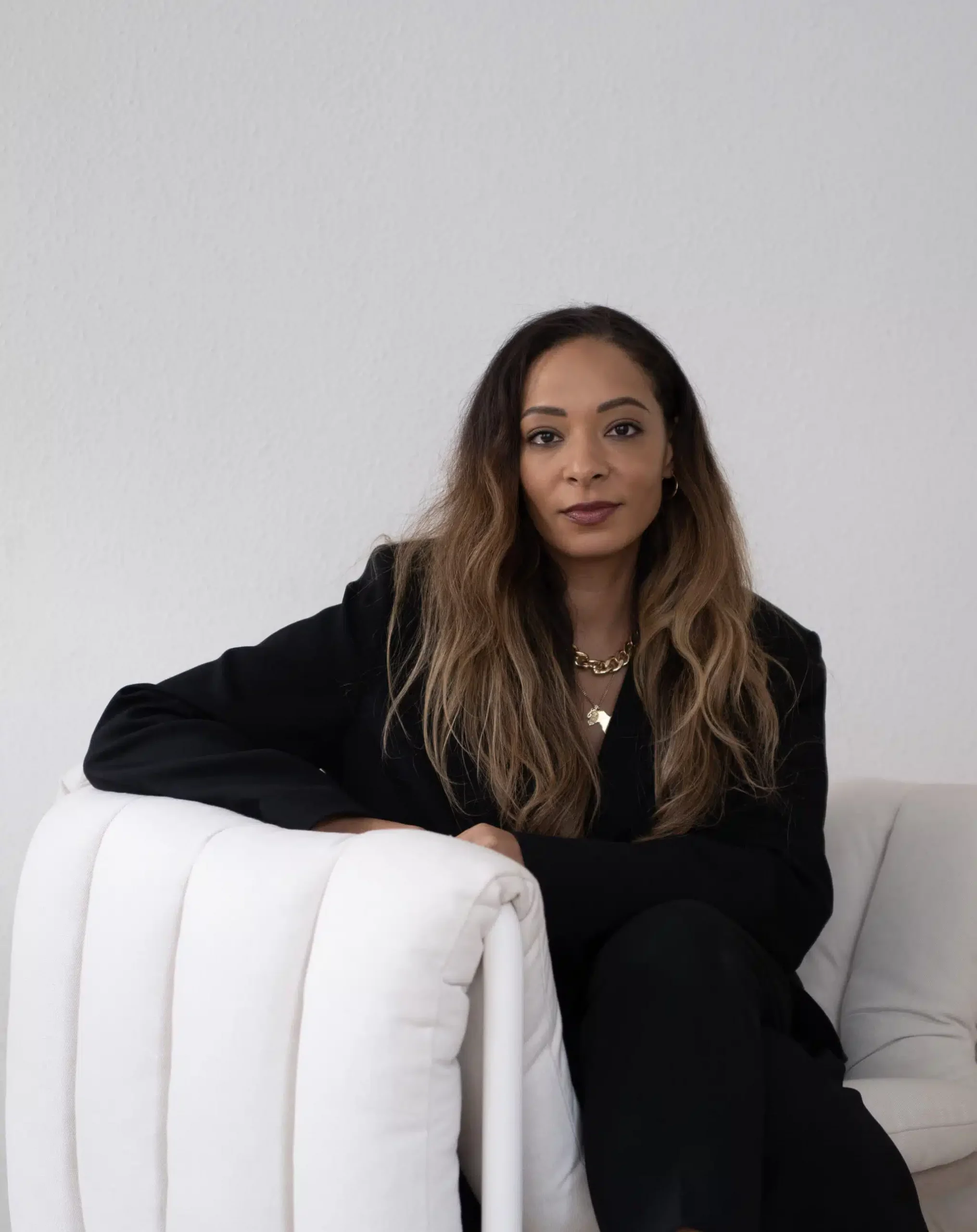We are proud to introduce Mintus, a simply ideal vessel for showing all your creative endeavors.



Im Mittelpunkt dieses Panels steht der ägyptische Dokumentarfilm The Brink of Dreams (2024) von Nada Riyadh und Ayman El Amir, Gewinner des Golden Eye Award für den besten Dokumentarfilm beim Filmfestival von Cannes. Der Film begleitet drei junge Mädchen aus einem koptischen Dorf in Minya – Majda, Monika und Haidi –, die durch Theater, Gesang und Tanz versuchen, die Grenzen ihrer ländlichen Umgebung zu überschreiten. Ihre künstlerischen Träume, zerbrechlich und zugleich kraftvoll, werden sowohl zu einem Raum der Heilung als auch zu einer Form des Widerstands, während sie sich Spott, Klassenschranken und patriarchalen Hürden stellen. Die Dokumentation zeigt, wie Kunst ein Mittel des Überlebens, der Identitätsfindung und der Konfrontation tief verwurzelter sozialer Ungleichheiten sein kann.
Aufbauend auf diesen Themen beschäftigt sich das Panel mit drängenden Fragen: Wie kann Kunst als Form des Widerstands dienen? Wie navigieren junge Menschen in konservativen Gesellschaften die Spannung zwischen Tradition und Selbstbestimmung? Welche Risiken und Chancen entstehen, wenn Frauen öffentlich patriarchale Normen infrage stellen? Und wie können Film und Festivals diese Stimmen sichtbar machen? Diese Fragen werden im zweiten Panel mit Nada Riyadh, Ayman El Amir und Andrea Voges diskutiert.
Nada Riyadh ist Filmemacherin und Aktivistin, deren Arbeit feministische und sozialpolitische Themen behandelt und künstlerische Ermächtigung als Werkzeug für Veränderung nutzt. Ayman El Amir ist Regisseur und Produzent aus Ägypten, spezialisiert auf soziale Themen, Jugendkultur und die Herausforderungen junger Menschen in konservativen Gesellschaften. Andrea Voges ist Autorin, Produzentin und Kuratorin, derzeit Kuratorin des Durban International Film Festival und von The Future is Africa Berlin, mit Fokus auf Filmprojekte, die sozialen Aktivismus und partizipative Initiativen sichtbar machen. Ein zentraler Bezugspunkt des Panels ist der Film The Brink of Dreams, der eindrucksvoll zeigt, wie junge Filmemacherinnen und Filmemacher in restriktiven Kontexten ihre Stimme finden, Grenzen überschreiten und Räume für Protest und Selbstermächtigung schaffen.
Moderiert wird das Panel von Kemi Fatoba, Journalistin und Autorin. Kemi studierte Journalismus und Kommunikationswissenschaften in Wien, gründete das Berliner Online- und Printmagazin www.daddy.land mit und lebt heute als freie Autorin in Berlin. Sie schreibt für deutsche und internationale Publikationen über Identität, Kultur und Repräsentation und initiierte gemeinsam die Vogue.de-Kolumne „Because Visibility Is Key – #RepresentationMatters“, in der sie regelmäßig über Schwarze Lebenserfahrungen berichtet.
At the heart of this panel is the Egyptian documentary The Brink of Dreams (2024) by Nada Riyadh and Ayman El Amir, winner of the Golden Eye Award for Best Documentary at the Cannes Film Festival. The film follows three young girls from a Coptic village in Minya—Majda, Monika, and Haidi—who, through theatre, song, and dance, try to push beyond the constraints of their rural environment. Their artistic dreams, fragile yet powerful, become both a space of healing and a form of resistance, even as they confront ridicule, class divisions, and patriarchal barriers. The documentary highlights how art can be an act of survival, a way of claiming identity, and a tool for confronting deep-rooted social inequalities.
Building on these themes, the panel explores urgent questions: How can art serve as resistance? How do young people in conservative societies navigate the tension between tradition and self-determination? What risks and opportunities arise when women publicly challenge patriarchal norms? And how can film and festivals amplify these voices? These questions will be discussed in the second panel with Nada Riyadh, Ayman El Amir and Andrea Voges.
Nada Riyadh is a filmmaker and activist whose work focuses on feminist and sociopolitical themes, using artistic empowerment as a tool for change. Ayman El Amir is a director and producer from Egypt who specializes in social issues, youth culture, and the challenges faced by young people in conservative societies. Andrea Voges is a writer, producer, and curator, currently serving as curator of the Durban International Film Festival and The Future is Africa Berlin, focusing on film projects that highlight social activism and participatory initiatives. A central reference point of the panel is the film The Brink of Dreams, which vividly illustrates how young filmmakers in restrictive contexts find their voice, push boundaries, and create spaces for protest and self-empowerment.
The panel is moderated by Kemi Fatoba, journalist and writer. Kemi studied Journalism and Communication Studies in Vienna, co-founded the Berlin-based online and print magazine www.daddy.land, and now lives in Berlin as a freelance writer. She writes for German and international publications on identity, culture, and representation and co-initiated the Vogue.de column “Because Visibility Is Key – #RepresentationMatters”, where she regularly writes about Black life experiences.
Andrea Voges is currently serving as Project Manager for the Festival Enterprise Catalyst, presented by the National Arts Festival and is part of the selection committee for the Red Sea International Film Festival’s Works-in-Progress Showcase. Over the last nineteen years, she has served in various roles, including Festival Manager and Head of Programming for the Durban International Film Festival – Southern Africa’s oldest, largest and only Oscar Qualifying Festival. The National Film and Video Foundations’ project South African-United Kingdom Seasons – an intergovernmental initiative to promote arts and culture between these two nations. In 2020, she was a Project Manager for the Presidential Employment Stimulus Package that sought to support artists during the Covid-19 pandemic. In 2021, Andrea joined the Realness Institute and Urucu Media as Programmes Manager and Sales & Distribution Manager respectively. Andrea holds a Bachelor of Arts degree and is a Southern Africa-Locarno Industry Academy alumnus. For the second time in 5 years, and its history, Screen International listed the 25 Future Leaders: Programmers and Curators to Watch – “profiling the people who are already influential in their fields and destined to rule the business in years to come” – Andrea was one of the 25 named.
Kemi Fatoba hat in Wien Publizistik- und Kommunikationswissenschaft studiert. Sie gründete DADDY Magazine, ein in Berlin ansässiges Online- und Printmagazin, das zur Diversifizierung der Medienlandschaft beitragen will. Sie wurde in Wien geboren, zog nach ihrem Abschluss nach London und lebt heute in Berlin. Dort schreibt sie als freie Autorin für deutsche und internationale Publikationen über Identität, Kultur und Repräsentation. Sie hat als Gastredakteurin die „Vogue.de“-Rubrik „Weil Sichtbarkeit das Wichtigste ist – #RepresentationMatters“ mit initiiert und schreibt dort auch eine Kolumne über Schwarze Lebensrealitäten.
Nada Riyadh ist eine ägyptische Filmemacherin. Ihr Debüt-Dokumentarfilm „Happily Ever After“, den sie gemeinsam mit Ayman El Amir drehte, feierte 2016 auf dem IDFA seine Premiere. Ihr Kurzspielfilm The Trap wurde für den offiziellen Wettbewerb der La Semaine de la Critique, Cannes Film Festival 2019, ausgewählt. Sie ist Absolventin verschiedener internationaler Filmprogramme, darunter Cannes’ La Fabrique, Next Step Program La Semaine de la Critique, Berlinale talents, American Film Showcase und Film Independent.
Ayman El Amir ist ein ägyptischer Filmemacher. Zu seinen jüngsten Arbeiten gehören die Regie des Dokumentarfilms „Happily Ever After“ zusammen mit Nada Riyadh, der auf dem IDFA 2016 Premiere feierte, und die Produktion des Kurzspielfilms „The Trap“, der für die Semaine de la Critique auf den Filmfestspielen von Cannes 2019 ausgewählt wurde. Er hat als Drehbuchberater für viele Labore und Institute gearbeitet, darunter TorinoFilmLab, Doha Film Institute, Marrakesh Atlas Atelier, DW Academy und Full Circle Lab.
Andrea Voges is currently Project Manager for the Festival Enterprise Catalyst, presented by the National Arts Festival, and serves on the selection committee for the Red Sea International Film Festival’s Works-in-Progress Showcase. Over the past nineteen years, she has held various roles, including Festival Manager and Head of Programming for the Durban International Film Festival, Southern Africa’s oldest, largest, and only Oscar-qualifying festival. She also worked on the National Film and Video Foundation’s South African-United Kingdom Seasons, an intergovernmental initiative promoting arts and culture between the two nations. In 2020, she was Project Manager for the Presidential Employment Stimulus Package, supporting artists during the Covid-19 pandemic. In 2021, Andrea joined the Realness Institute and Urucu Media as Programmes Manager and Sales & Distribution Manager, respectively. She holds a Bachelor of Arts degree and is a Southern Africa-Locarno Industry Academy alumnus. Screen International listed her twice in five years among the 25 Future Leaders: Programmers and Curators to Watch, recognizing her as already influential and destined to shape the industry.
Kemi Fatoba studied Journalism and Communication Studies in Vienna. She founded DADDY Magazine, a Berlin-based online and print magazine aiming to diversify the media landscape. Born in Vienna, she moved to London after graduation and now lives in Berlin. She writes as a freelance author for German and international publications on identity, culture, and representation. She co-initiated the Vogue.de column “Because Visibility Is Key – #RepresentationMatters,” where she also writes regularly about Black life experiences.
Nada Riyadh is an Egyptian filmmaker. Her debut documentary Happily Ever After, co-directed with Ayman El Amir, premiered at IDFA in 2016. Her short feature The Trap was selected for the official competition of La Semaine de la Critique at the Cannes Film Festival in 2019. She is a graduate of various international film programs, including Cannes’ La Fabrique, Next Step Program La Semaine de la Critique, Berlinale Talents, American Film Showcase, and Film Independent.
Ayman El Amir is an Egyptian filmmaker. His recent work includes directing the documentary Happily Ever After with Nada Riyadh, which premiered at IDFA in 2016, and producing the short film The Trap, selected for La Semaine de la Critique at the Cannes Film Festival in 2019. He has also worked as a script consultant for many labs and institutes, including TorinoFilmLab, Doha Film Institute, Marrakesh Atlas Atelier, DW Academy, and Full Circle Lab.